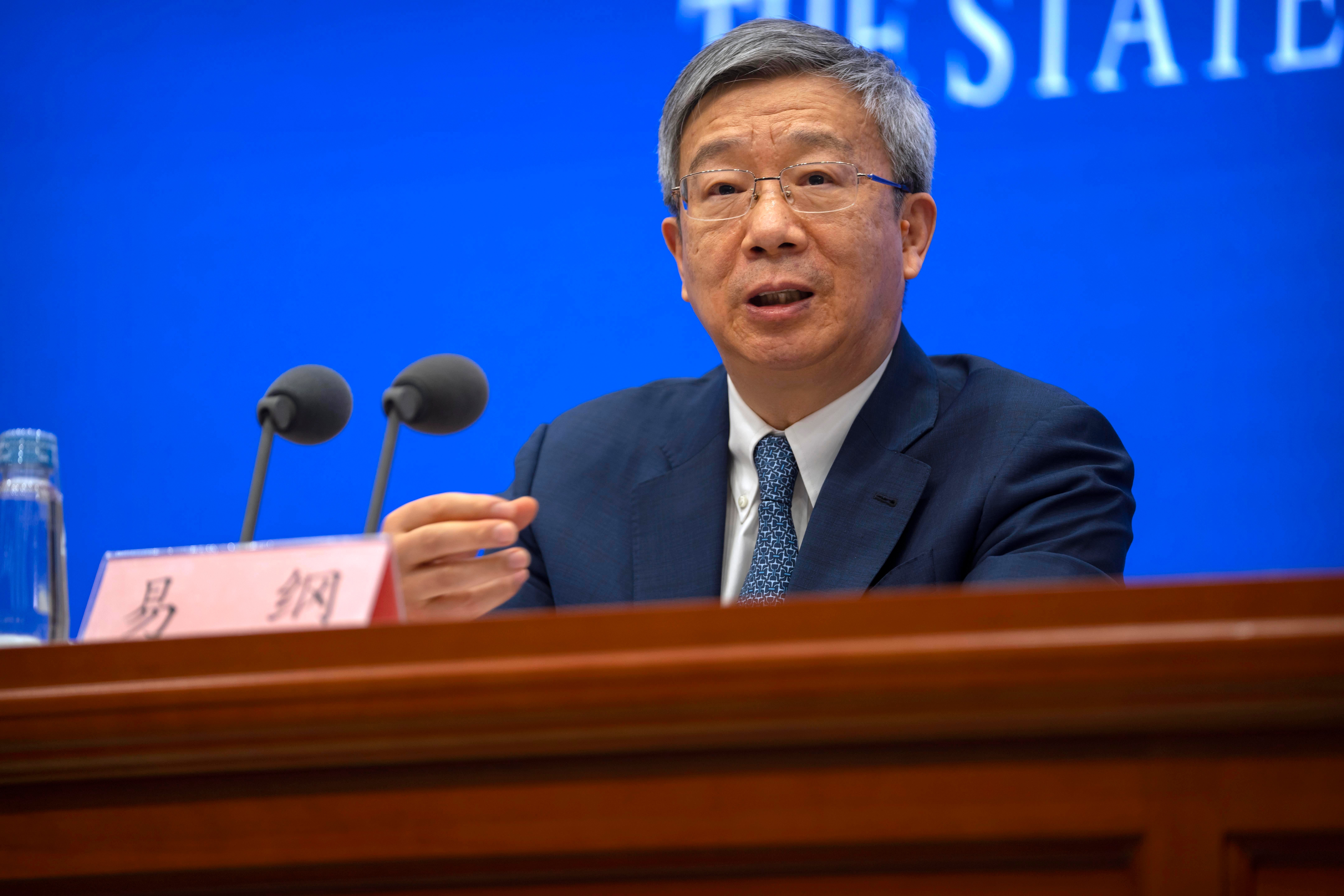Favoring continuity, China reappoints central bank governor
China has reappointed Yi Gang as head of the central bank in an effort to reassure entrepreneurs and financial markets by showing continuity at the top while other economic officials change

China on Sunday reappointed Yi Gang as head of the central bank in an effort to reassure entrepreneurs and financial markets by showing continuity at the top while other economic officials change.
Yi, whose official title is governor of the People’s Bank of China, plays no role in making monetary policy, unlike his counterparts in other major economies. His official duties lie in “implementing monetary policy,” or carrying out decisions made by a policymaking body whose membership is a secret.
But the central bank governor acts as spokesperson for monetary policy, is the most prominent Chinese figure in global finance and is in charge of reassuring bankers and investors at a time when China’s economy is emerging from drastically slower growth.
At the March 5 opening of the annual session of China’s rubber-stamp parliament, the National People’s Congress, China announced plans for a consumer-led revival of the struggling economy, setting this year’s growth target at “around 5%.”
Last year’s growth fell to 3%, the second-weakest level since at least the 1970s, putting president and head of the ruling Communist Party Xi Jinping under exceptional pressure to revitalize the economy.
A longtime veteran of monetary policy departments, Yi was first appointed governor of the People’s Bank of China in March 2018, taking over from the highly regarded Zhou Xiaochuan.
Before becoming governor, Yi spent 20 years at the central bank after getting his Ph.D. from the University of Illinois and working as a professor of economics at Indiana University from 1986 to 1994.
He is also a co-founder and professor at Peking University's China Center for Economic Research.
The ruling Communist Party made a similar decision to opt for continuity in 2013, when then-PBOC governor Zhou, who already had been in the job for a decade, stayed on as governor while all other economic regulators changed.
Yi's reappointment came on the congress's penultimate day, which also saw Xi loyalists appointed as finance minister and head of the Cabinet planning agency to carry out a program to tighten control over entrepreneurs, reduce debt risks and promote state-led technology development. Incumbent Wang Wentao was reappointed minister of commerce.
A priority will be to manage corporate and household debt that Beijing worries has risen to dangerous levels. Tighter debt controls triggered a slump in China’s vast real estate industry in 2021, adding to the COVID-19 pandemic’s downward pressure on the economy.
At the same time, the ruling party is trying to shift money into technology development and other strategic plans. That has prompted warnings too much political control over emerging industries could waste money and hamper growth.
Xi has favored promoting officials who sometimes lack the experience of their predecessors and exposure to global industry and finance markets. That reflects Xi’s effort to purge the Chinese system of Western influence and promote homegrown strategies.